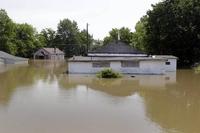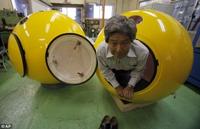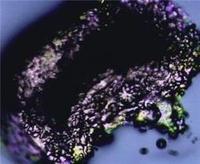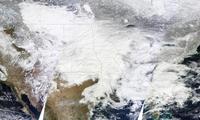-
Disasters hurt Honda’s production, lower revenue
On Tuesday Japanese auto manufacturer Honda Motor Company announced that it had slashed its annual profit guidance as a result of the natural disasters in Japan and Thailand
-
-
FEMA grant helps UW create disaster plan
The University of Wisconsin is currently hard at work developing a comprehensive disaster preparedness plan with the help of FEMA
-
-
Florida blood service upgrades storage systems
Florida Blood Services has replaced three disparate storage systems with the Nimble CS240 converged storage array; FBS says the new storage operation allows FBS more efficient and centralized storage for FBS’s headquarters and forty field offices
-
-
Ex. Special Forces officers launch India-based threat detection company
TigerSwan and its joint venture partners, Kaizen Technologies and Santa Monica Financial have formed TigerSwan Vulnerability Management Services Private LTD, based in Mumbai
-
-
Sea water could corrode nuclear fuel
Japan used seawater to cool nuclear fuel at the stricken Fukushima-Daiichi nuclear plant after the tsunami in March 2011 — and that was probably the best action to take at the time; scientists have since discovered a new way in which seawater can corrode nuclear fuel, forming uranium compounds that could potentially travel long distances, either in solution or as very small particles
-
-
Tsunami debris spread across Pacific Ocean
The 11 March 2011 tsunami in Japan washed millions of tons of debris into the Pacific; scientists have been trying to track the trajectory of this debris that can threaten small ships and coastlines
-
-
Insurance companies predict increase in premiums

Even after all the flood waters have receded and power has been restored, New Jersey homeowners will still have to suffer the consequences of Hurricane Irene; according to insurance industry representatives and analysts, homeowners and businesses will likely see their insurance premiums increase over the next several years
-
-
Midwest preps for multi-state earthquake drill
Emergency management agencies across the central United States are getting ready for a multi-state earthquake preparedness drill next month; led by the University of Southern California’s Earthquake Center, on 7 February at 10:15 AM CST, more than one million people across nine states will participate in the “Great Central U.S. ShakeOut”
-
-
Floating life capsule can save lives in tsunami

Following the devastating earthquake and tsunami that left roughly 20,000 people dead in Japan, Japanese engineers have been hard at work developing innovative solutions to help save lives in the event of another major disaster; one such invention is Noah, a floating capsule that holds up to four people
-
-
World’s first magnetic soap can clean oil spills

A University of Bristol team has dissolved iron in liquid surfactant to create a soap that can be controlled by magnets; the discovery could be used to create cleaning products that can be removed after application and used in the recovery of oil spills at sea
-
-
Restored wetlands rarely equal condition of original wetlands
Wetlands provide many societal benefits such as biodiversity conservation, fish production, water purification, erosion control, carbon storage; along the coast, they also serve as natural barrier which moderate and slow down hurricanes as the hit land; a new analysis of restoration projects shows that restored wetlands seldom reach the quality of a natural wetland
-
-
FEMA urges greater public-private cooperation in disaster response
Speaking at the International Disaster Conference and Exposition, Craig Fugate, the head of the Federal Emergency Management Agency (FEMA), urged emergency planners to take a broader view of disaster response and include the private sector
-
-
2012 business worries
Businesses list the threats they are most concerned about in 2012; leading the list: unplanned IT and telecom outages, data breaches, and adverse weather
-
-
2011: costliest ever year for earthquakes, weather-related disasters

A sequence of devastating earthquakes and a large number of weather-related catastrophes made 2011 the costliest year ever in terms of natural catastrophe losses; at about $380 billion, global economic losses were nearly two-thirds higher than in 2005, the previous record year with losses of $ 220 billion
-
-
RI’s new emergency manager makes disaster communication key priority
One of the top priorities for Theresa C. Murray, Rhode Island’s new executive director of emergency management, is communication particularly among government employees during a major attack or a disaster
-
More headlines
The long view
The Surprising Reasons Floods and Other Disasters Are Deadlier at Night
It’s not just that it’s dark and people are asleep. Urban sprawl, confirmation bias, and other factors can play a role.
Why Flash Flood Warnings Will Continue to Go Unheeded
Experts say local education and community support are key to conveying risk.
